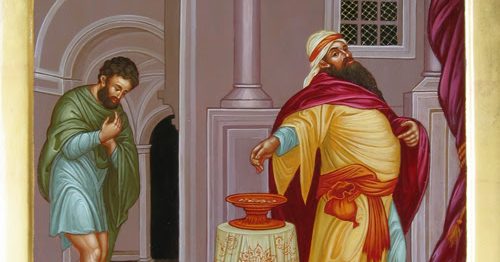Liturgy: “The Last Will Be First”
In Flannery O’Connor’s “The Lame Shall Enter First,” a social worker named Sheppard takes under his wing a very smart, but very troubled, fourteen-year-old named Rufus Johnson. Rufus Johnson has a deformed foot, which symbolizes the deformity of his soul.

What is the King’s Liturgy? King’s Liturgy defines our experience together as a Christian community. It outlines the rhythms we celebrate with the Church at large: Scripture readings, Sabbath habits, and celebration of Holy Days and historical events.
This Week’s Lectionary Readings
Exodus 16:2-15
Psalm 105:1-6, 37-45
Philippians 1:21-30
Matthew 20:1-16
This week’s liturgy is contributed by Dr. Robert Carle, professor of religious and theological studies:
In Flannery O’Connor’s “The Lame Shall Enter First,” a social worker named Sheppard takes under his wing a very smart, but very troubled, fourteen-year-old named Rufus Johnson. Rufus Johnson has a deformed foot, which symbolizes the deformity of his soul.
Sheppard believes that he is a good man who can “shepherd” troubled boys and make them healthy, productive, and virtuous. Rufus Johnson continuously subverts Sheppard’s self-satisfied picture of the world. Rufus insists that he is under the control of Satan and that only Jesus (not Sheppard) can save him. Rufus has a vivid sense of the depth of his own depravity and of the stark choices that will determine his eternal destiny. He says that if he ever does choose God instead of Satan, he will be a preacher of the Gospel. Sheppard’s world crumbles when he realizes that he cannot save either Rufus or his son Norton.
Like Flannery O’Connor, Jesus constantly tells stories that subvert our self-satisfied views of the world. We would expect the older son to be praised and the prodigal son to be chastised. We would expect a Pharisee’s prayer to be acceptable to God and a sinner’s prayer to be unacceptable. We would expect a religious leader to stop and minister to a wounded traveler and a Samaritan to pass by on the other side. Simple justice seems to demand that workers in the vineyard get paid an hourly wage.
Law-abiding, morally upright citizens need to be jolted out of our complacency because we are the last people to understand God’s grace. Those of us who fulfill laws of morality can feel that we have struck a bargain with the universe. We are good people, God should respond to us by showering us with favors. Juvenile delinquents, prostitutes, drug addicts, and tax collectors know instinctively that they have broken the moral law. They know that they are in no position to bargain with God. For them, it is God’s grace or it is nothing. That is why Jesus warns us that “many that are first will be last, and many that are last will be first.”





